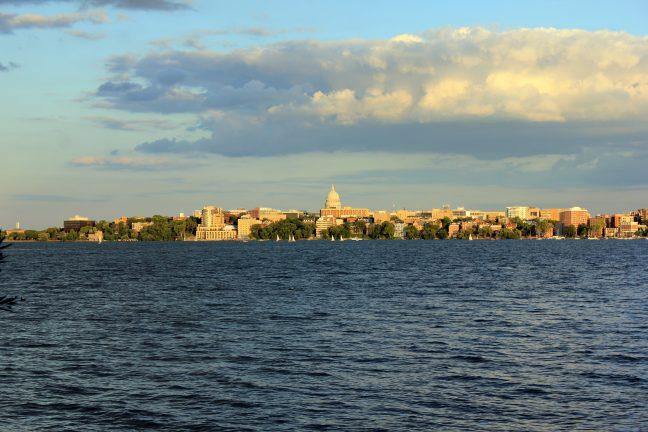This year the University of Wisconsin selected the award-winning book titled “The Death and Life of the Great Lakes” by Dan Egan for the Go Big Read Program.
Go Big Read is a program promoting the enjoyment of literature among students on campus as well as members of the surrounding community. Each year, UW selects a new, academically focused book for participants to read, as well as hosts a variety of classroom discussions and campus events about it.
“The Death and Life of the Great Lakes” was picked because of its focus on bringing awareness to environmental issues experienced by the Great Lakes, a landmark familiar to many Midwesterners.
The book was recently named one of the top 10 best environmental, climate science and conservation books of 2017 by Forbes magazine.
Chancellor Rebecca Blank hopes the book will serve as inspiration for readers to address ecological concerns and take better care of the nature surrounding them.
“This book takes a historical look at the Great Lakes with deep affection and concern for the future,” Blank said. “It’s written in a way that pulls readers in and serves as a reminder that we can’t take these wonderful resources for granted.”
Dane County to implement lake clean-up effort, reconstruct runoff-hindering detention pond
Author Dan Egan is also a senior water policy fellow at the University of Wisconsin-Milwaukee. He grew up in Green Bay and spent much of his childhood playing in the Fox and Lower Green Bay rivers.
Egan cited the heavy pollution of the rivers as part of his inspiration for writing “The Death and Life of the Great Lakes.” But, Egan said his main interest in the Lakes stems from the time he spent as a reporter out in the deserts of Idaho and Utah.
After 10 years of living in the desert, Egan moved back to Wisconsin, discovered a newfound appreciation for the Great Lakes and found himself writing many stories about them for the Milwaukee Journal Sentinel.
“There is really nothing like [the Great Lakes] on Earth,” Egan said.
Egan said that one day, amid writing another piece about his favorite landmarks, he realized there was a bigger story to tell about the Great Lakes that nobody had explored yet.
Egan wanted to know how the Great Lakes had gotten as “messed up” as they had.
“What in the hell have we done to these lakes that span 94,000 square miles and are the world’s largest freshwater system?” Egan asked.
UW announces Go Big Read will explore ecological catastrophe in Great Lakes
It was that question that fueled him on his journey to pen “The Death and Life of the Great Lakes” where he reveals to readers the struggles the Great Lakes have faced with a variety of issues including overfishing, logging, industrial pollution and most recently, invasive species.
Egan’s book also offers suggestions to help the overused bodies of water recovery from years of pollution and overuse. Egan believes one of the main ways we can help the Great Lakes recover is to stop the invasion of even more new species.
Jake Vander Zanden, director of the Center for Limnology, says that Madison area lakes are facing some of the same difficulties presented in “The Death and Life of the Great Lakes.”
Invasive species have brought about potentially irreversible ecological damage, Vander Zanden said. In addition, nutrient loading from both agricultural and urban sources combined with climate change is causing a decrease in water quality and increase in blue-green algae blooms.
“Environmental degradation has far-reaching effects that include both human health and economic consequences…the recent flooding in Madison should be a wake-up call demonstrating that our community is highly vulnerable to climate change, and highlighting the urgent need for climate adaptation,” Vander Zanden said.
As summer heats up, UW professor warns of algae hazards in Madison’s lakes
Egan said he is thrilled to have been selected for the Go Big Read program.
He believes the Go Big Read program is a great opportunity to spread the word about why the Great Lakes matter to more than just the people living on their shores.
“The story of what’s happened to them is a cautionary tale relevant to, basically, anyone who drinks water,” Egan said.
A visit from Egan to the UW campus is in the works. Copies of the book were distributed at the Chancellor’s Convocation for new students and for students who will be using the book for their coursework.


















